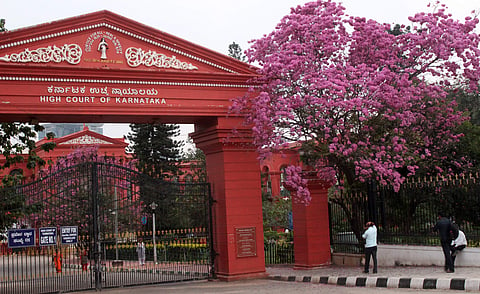

BENGALURU: The High Court of Karnataka declined to interfere with the notification issued by the Government of India imposing quality control on the import of plastic with effect from January 1, 2024.
Justice M Nagaprasanna rejected the petition filed by All India HDPE/PP Woven Fabric Manufacturers’ Association, represented by its Secretary General Naresh Bhandia, questioning the notification dated April 15, 2021.
The court said every raw material now that is sought to be brought under the Bureau of Indian Standards (BIS) is only to make it a quality final plastic product, for it would not become hazardous to the environment and be of use to the general public and meet health and safety standards including food conduct regulations, as they are widely used in every walk of human life.
If the product under the programme “Make in India” is sought to be exported under the tag “Made in India” quality insistence from the threshold would ensure that the final product would meet all the necessary global standards, the court said.
The court also said that this court in the exercise of its jurisdiction under Article 226 of the Constitution of India would not tinker with a notification that wants to bring in quality usage, by necessitating a seal of the BIS at the stage of the raw material itself.
The Ministry of Chemicals and Petro Chemicals issued an impugned quality control order seeking to impose restrictions on low-density polyethylene, linear low-density polyethylene and high-density polyethylene by bringing them under the Bureau of Indian Standards (Conformity Assessment) Regulations, 2018.
The petitioner claimed that the imposition of such a clause on the supply of raw materials would restrict free movement and the notification is aimed at one single purpose, to help Reliance Industries, which has a monopoly in the manufacture of linear and a particular ingredient ‘granule’ that is necessary for the production of plastic.
The central government contended that the petitioners did not want to bring quality into the country. If any interference is shown by the court with this policy decision, economic policy or a policy to regulate quality in particular, by exercising its jurisdiction under Article 226 of the Constitution of India, it would lead to cheap raw materials being imported, as was done earlier, which would lead to several hazardous issues including environmental.
On the allegations that there is only one player in the market, the central government contended that there are about 50 players in the market including the ones that are outside the country and insofar as granules are concerned there are 12 players in the market and not only the Reliance Industries.